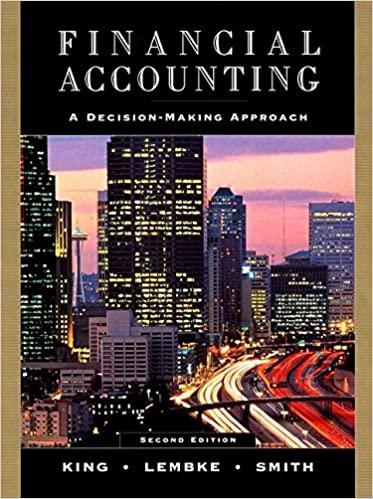Multiple Choice: Retained Earnings Select the correct answer for each of the following: 1, The balance in
Question:
Multiple Choice: Retained Earnings Select the correct answer for each of the following:
1, The balance in the retained earnings account reflects the:
a. Amount of cash available to be distributed to owners.
b. Total margin of safety available to protect the claims of the creditors.
c. Total amount of the corporation’s earnings from its inception.
d. Accumulated undistributed earnings of the corporation.
2. The current retained earnings balance of a company is important to investors because it:
a. Is one factor in the company’s ability to pay dividends.
b. Indicates whether the company is profitable currently.
c. Is an important indicator of the company’s liquidity.
d. All of the above.
3. Which of the following statements about dividends is true?
a. Dividends accrue in the same way that interest does.
b. Common stock typically receives a dividend equal to the amount paid to preferred shareholders, but preferred stock must be paid first.
c. Cash dividend disbursements occur on the ex-dividend date.
d. Dividends may be paid only after a dividend declaration by the board of directors.
4, Stock dividends:
a. Are proportional distributions of additional shares of stock to current shareholders with no change in an individual stockholder’s ownership percentage.
b. Are valuable because they increase an individual stockholder’s ownership proportion.
c. Reduce corporate assets.
d. Increase total stockholders’ equity.
Which of the following statements is true?
a. Dividends and interest are both expenses related to corporate financing.
b. The retained earnings statement reports dividends declared, as well as all nonoperating gains and losses.
c. Once a cash dividend is declared, the corporation has a liability payable to its stockholders until the dividend is paid.
d. Stock dividends on common stock do not affect retained earnings.
rn
Step by Step Answer:

Financial Accounting A Decision Making Approach
ISBN: 9780471328230
2nd Edition
Authors: Thomas E. King, Valdean C. Lembke, John H. Smith





